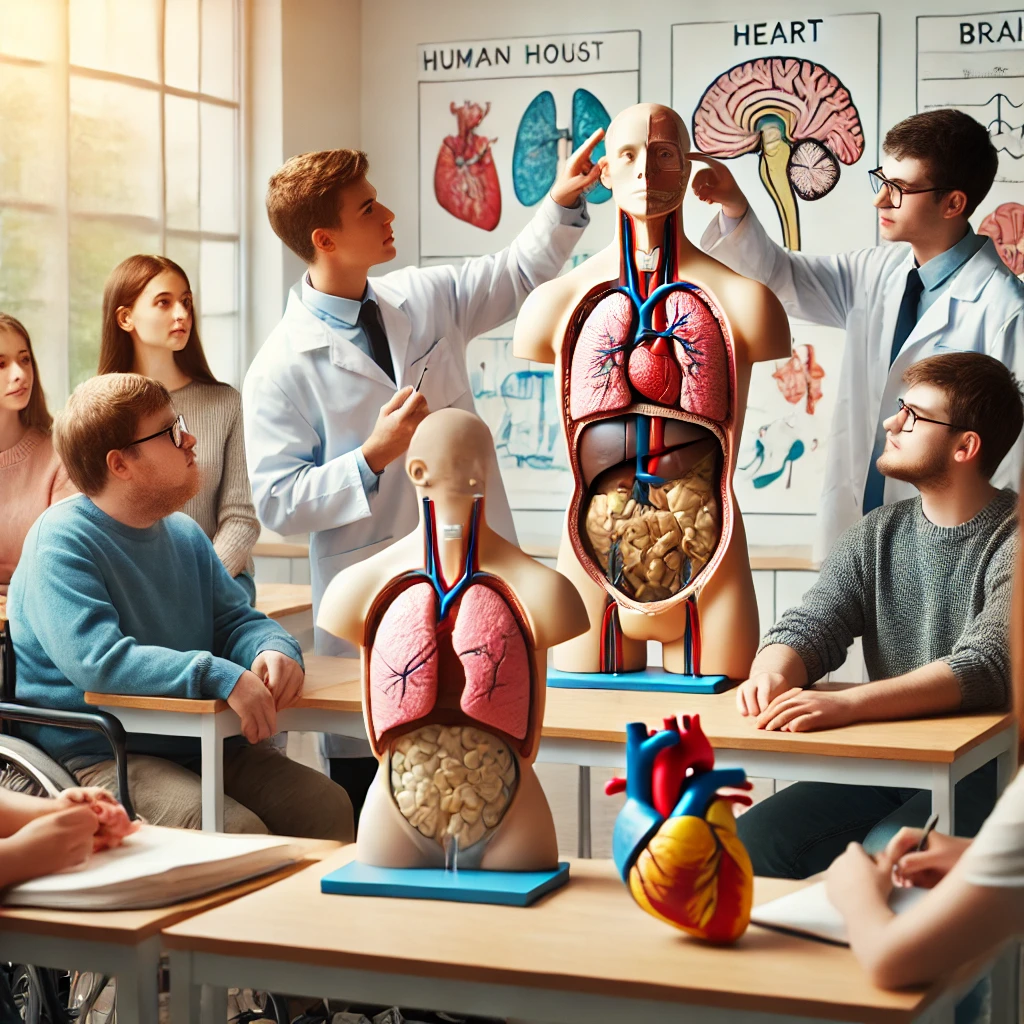Embracing the Differences
Empowering Autistic Individuals through Anatomy Education
Teaching individuals with autism about the human body and the functions of its various parts is an invaluable tool for self-awareness and communication. When autistic individuals understand how their bodies work, they are better equipped to express their physical needs and discomforts, enhancing their ability to advocate for themselves. This knowledge empowers them to participate more actively in their healthcare and personal well-being decisions. Furthermore, learning about the human body can cater to the interests of many autistic individuals who often show heightened focus in specific areas, providing a fulfilling and engaging educational experience. This educational approach also promotes inclusivity and can increase confidence, as it helps these individuals understand commonalities with others, fostering a sense of connection and belonging.
Exploring Basic Science Concepts to Enhance Understanding and Communication in Autistic Learners
Introducing autistic individuals to basic science concepts like geography, volcanoes, and static electricity helps broaden their understanding of the world around them. This type of education can be particularly engaging for those with autism, who may have intense interests in specific subjects. By connecting these scientific concepts to everyday experiences, autistic learners can enhance their observational skills and apply scientific reasoning to better navigate their environment. Additionally, learning about diverse scientific topics can improve communication skills, as it provides them with a wider vocabulary and more topics to discuss with others. This educational approach not only supports cognitive development but also encourages curiosity and a lifelong love of learning, fostering a sense of achievement and self-confidence.
Planting Seeds of Knowledge: The Benefits of Botany Education for Autistic Individuals
Teaching autistic individuals about plants, vegetables, and fruits, including how they grow and their nutritional benefits, offers a multifaceted educational experience that can be both therapeutic and enriching. Engaging with botany can help develop fine motor skills through activities like planting and gardening, and the sensory experience of touching and smelling different plants can be soothing and help with sensory integration issues. Moreover, understanding the growth cycles of plants and their nutritional value empowers autistic individuals with knowledge that can lead to healthier eating habits. This education also provides practical life skills and encourages responsibility and independence. Overall, such learning not only enriches their scientific knowledge but also promotes well-being and a connection with nature.
Voices of Autism: Inspiring Quotes and Reflections








